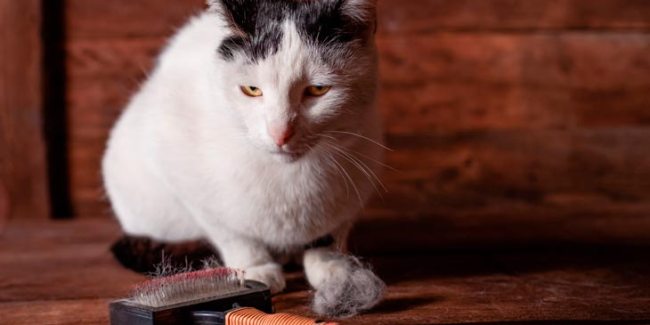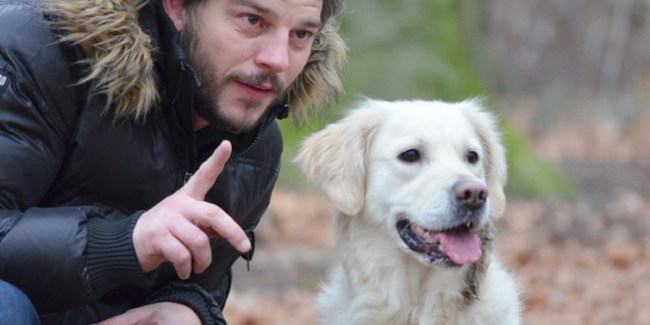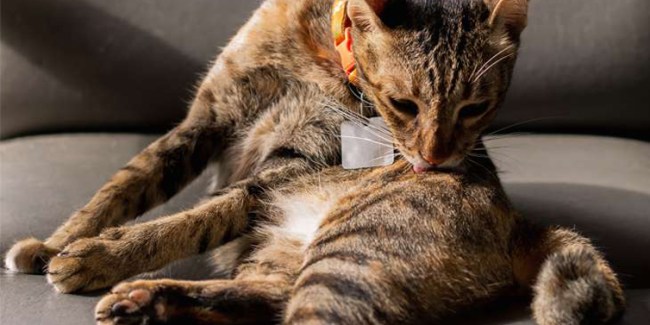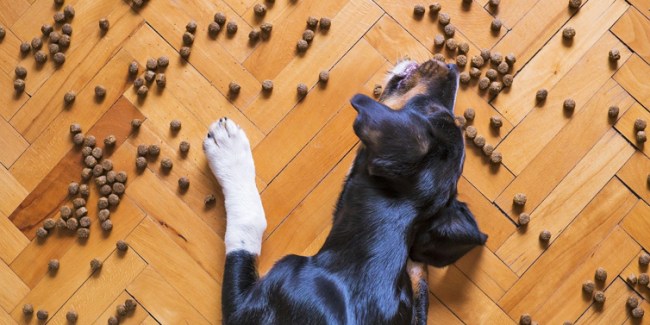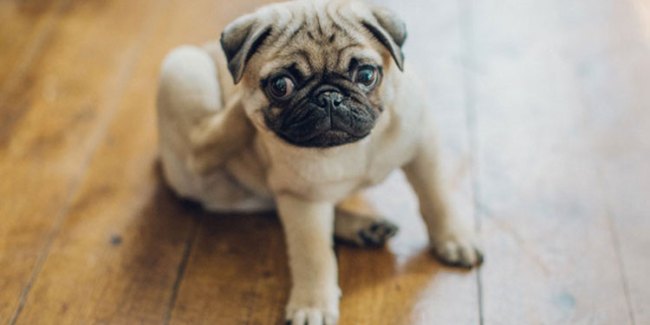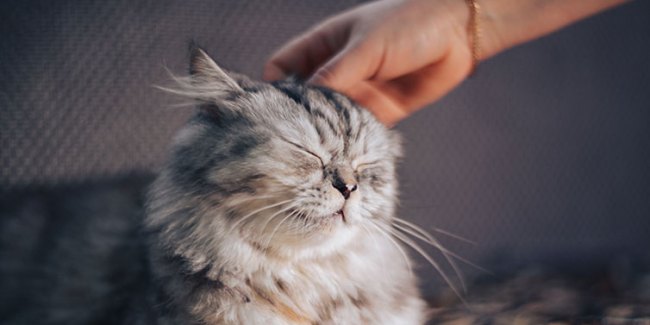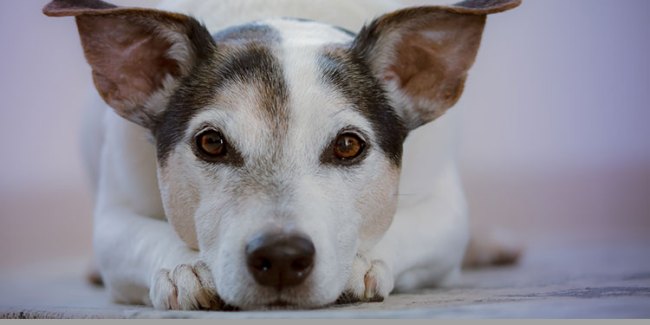Feeding Your Senior Pooch
We all grow old, furry friends included. It’s a fact of life, and just as our human needs change over time, so do the needs of our pooches. However, with the right food at each stage of life, you can expect to continue to get a lot of love and energy from your doggy. It goes without saying, of course, that your pooch is totally dependent on you to ensure that he/she is healthy and comfortable at each stage, including the senior years.
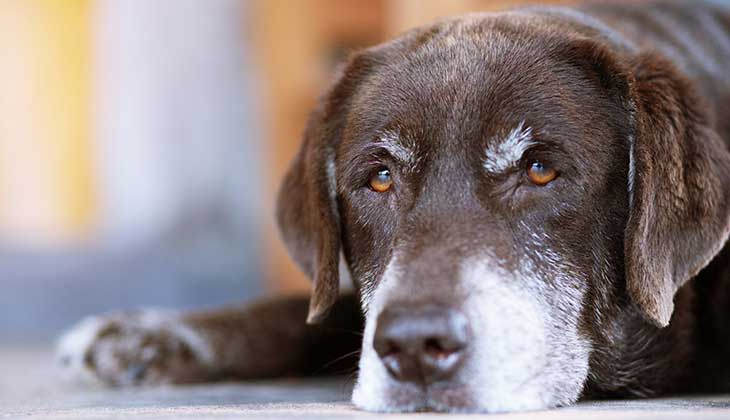
Signs of Aging in Dogs
You can expect changes in your dog’s teeth, in his/her digestion and in physical activity, which may decrease. Of course, different breeds and sizes reach the senior years at different times. For example, bigger dogs may show signs of aging over a year sooner than smaller dogs. Differences in diet, genetics, exercise levels and general health also have an impact, as with humans. Our metabolism and immune systems slow down with aging, and so do our furry friends’.
The following changes are signs of aging in our dogs:
- Activity levels: You may notice that your dog becomes less active, less interested in playing and sleeps more as he/she gets older.
- Appearance: Your pooch’s coat may lose its shine and appear to be dull. You may also see that the fur around the eyebrows and muzzle becomes grey.
- Personality: Your dog may seem to be more irritable especially with other dogs and children.
- Physical changes: You may notice hearing loss, joint stiffness, eyes watering and digestive problems.
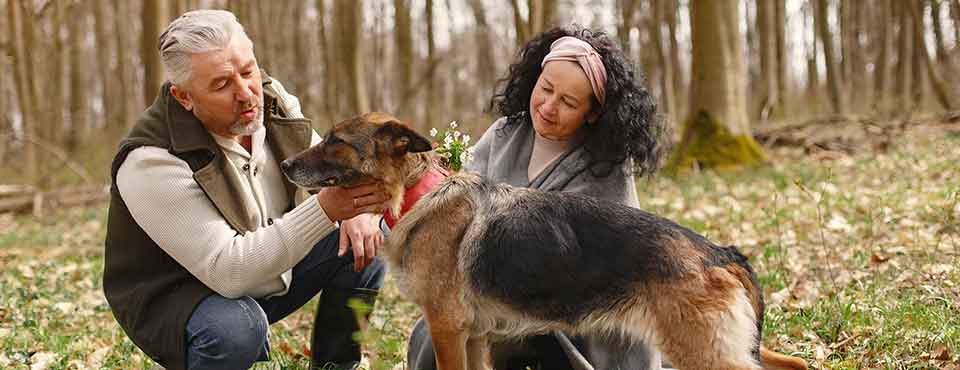
Feeding Senior Dogs
Some dogs tend to put on weight as they get older, so you need to keep an eye on this. With aging, many dogs adopt a more sedentary lifestyle and physical activity is reduced, which means that less calories are burnt up. In fact, some vets recommend that you reduce your pooch’s intake of calories by around 20 %. Your senior doggie’s diet should therefore be lower in calories and easier to digest, while ensuring that fat and protein levels are kept up.
You should consult your vet about your senior dog’s diet. He/she will be able to recommend a diet which is easily digestible to avoid gastrointestinal problems and which contains appropriate nutrients. This diet should also reduce the risk of putting on weight.
Free access to fresh water is particularly essential for senior dogs as they are more likely to suffer from dehydration.
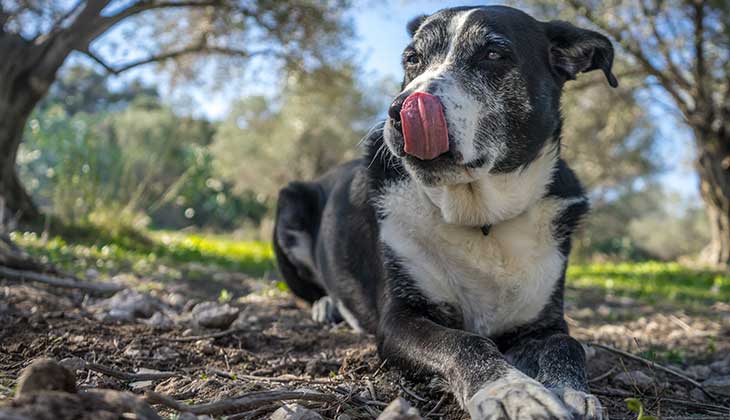
Points to remember about senior dogs’ nutrition.
- The food you are providing for your pooch should always be appropriate for his/her size, age, weight and level of activity. Consult your vet about this.
- You should begin to consider changes in nutrition around the age of eight years for smaller dogs and at five years for medium/larger dogs.
- You should consider feeding your older dog twice a day because gastric problems may occur if the time between meals is too long.
- Provide the highest quality food that you can, ensuring that protein levels are maintained and that calories are reduced.
- Daily exercise is still necessary for your older doggy’s physical and mental health.
- Visiting your vet every six months for regular check-ups will ensure that any potential health problems are more likely to be detected early.
ZA-BRV-220700003

Subscribe to our Newsletter
Get to know your furry friend better! Sign up for all things dog- or cat-related.
The Hairy Facts about the dreaded hairball
12 April 2021
Help! My dog’s barking mad! Volume 2
12 April 2021
Your Itchy, Scratchy Cat – All About Cat Skin Problems
12 April 2021
The Dog’s Diet: A Bone of contention?
01 April 2021
Mango Fly Worms: How to Spot and Eliminate them
Posted on November 28,2019
Managing Mange And Mites In Your Dog
Posted on June 11,2018
Why Do Cats Purr and How? Learn What Your Cat Is Saying
Posted on October 14,2020
How to Get Rid of Ear Mites in Dogs
Posted on November 06,2019


